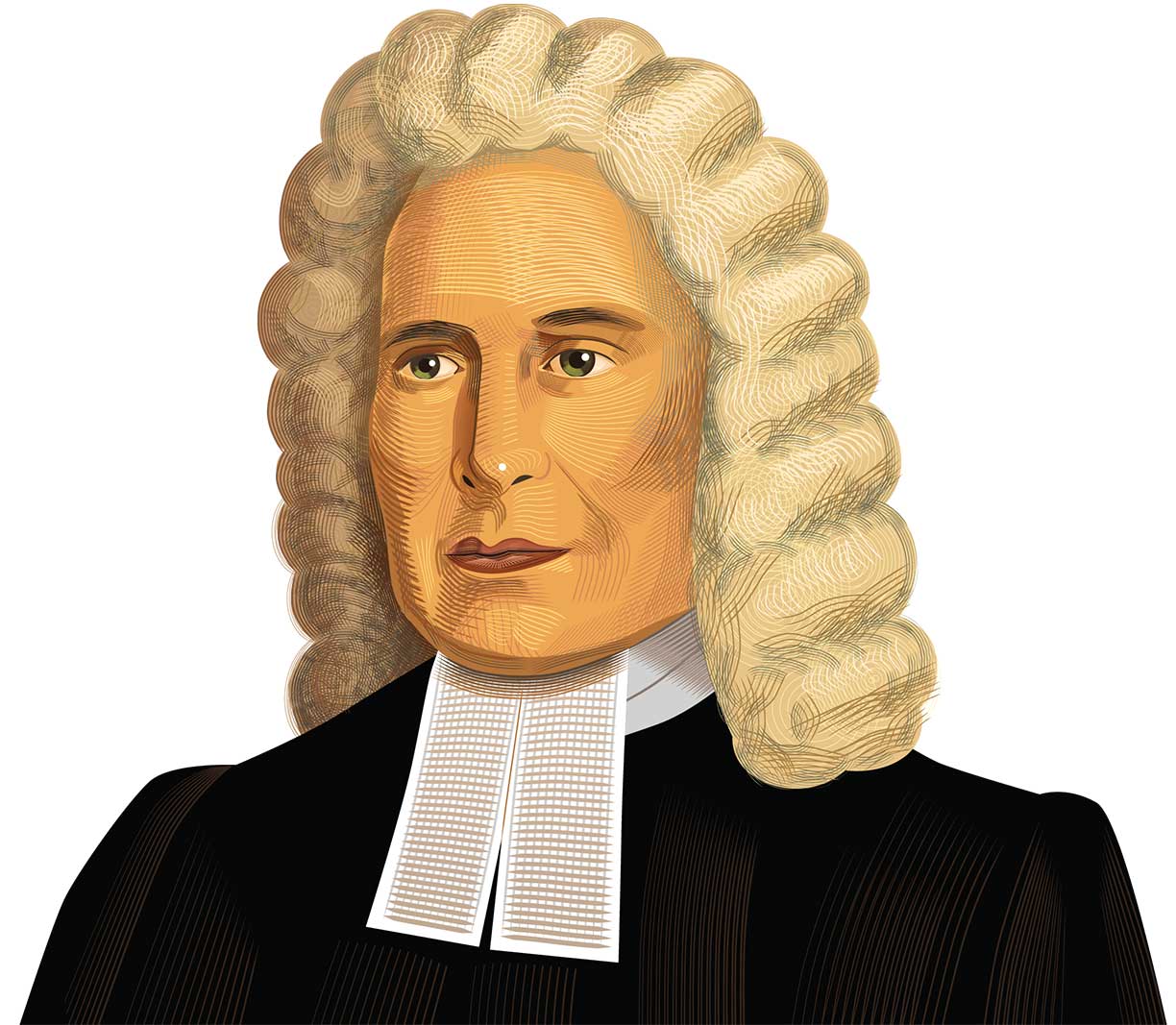An Innocent Sent Abroad to Raise Funds For the College
Princeton Portrait: Samuel Davies (1723–1761)
In 1751, the trustees of the College of New Jersey, which was just five years old, wrote to a clergyman in Virginia named Samuel Davies. The College needed money, and the trustees asked Davies, whom they knew through the Presbyterian Church, to travel to Great Britain to ask supporters of learning to fill the bursary of the new school. Davies — who dreaded leaving home — refused, citing his “youth and other defects.” A year later, the trustees asked Davies to reconsider his decision. He refused. A few months after that, they took a vote and decided that, yes, Davies would travel to raise funds in Great Britain.
“The Board of Trustees unanimously voted me to undertake the Voyage,” he wrote in his diary. “When I was informed of it by a Letter from the worthy President Burr, it struck me into a Consternation and Perplexity unknown before.” He reluctantly agreed to go.
Travel to Europe took three months. Davies complained in his diary of seasickness, gales, and “watry Vallies and Mountains” that tossed the ship “like a little-Cork.” He flinched from the constant swearing of the sailors — “I was shocked to hear the infernal Language of the Boatmen. Alas! the whole World lieth in Wickedness” — and put up a vigorous campaign of sermons and heart-to-hearts to sweeten their tongues through the spirit of God. God did not inspire the sailors to stop swearing; however, God probably prevented them from throwing Davies overboard.
In December 1753, Davies arrived in the Port of London (“Masts look like vast Forests,” he commented) and got to work visiting worthies and singing praises of the College. He wrote about the sights of London, uncomfortable lodgings, European manners, divine Providence, tight-fisted Scots, charming donors, stern donors, and donors who gave him their poetry to critique. “We have had the most surprising success in our mission,” he wrote in 1754. “Our friends in America cannot hear the news with the same surprise, as they do not know the difficulties we have had to encounter with; but to me it appears the most signal interposition of providence I ever saw.” He stayed abroad for almost two years, traveling to cities throughout England and Scotland.
On the voyage home, he braved perilous seas again, distracting himself by trying, once more, to dissuade the sailors from swearing. “I am quite discouraged in my Attempts to reform the Ship’s Company,” he wrote, “particularly the Capt. who has many amiable Qualities blended with his Vices. I have spoken to them repeatedly in the most solemn Manner I could; but after all, they forget themselves so far, that they swear and imprecate in my hearing. Alas! the more I know of human Nature, the more I am convinced of its utter Depravity.”
All told, Davies raised about 3,000 pounds during his trip to Britain — more than $860,000 in today’s money, a windfall that helped the College to move from Newark to Princeton. The trustees were so gratified that they later made Davies the fourth president of the College, a position that he held for 18 months until his death, of pneumonia. That was long enough for him to create the first catalog of the 1,281 books in the College library, part of his effort to promote the library and literature in general.
While in Britain, he wrote, “I long to be at Home in my Study, and with my dear Family, for the Character of a Recluse Student suits me much better than that of a Man of Business.”












No responses yet